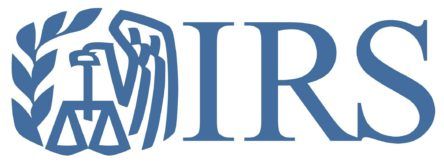Assembly panel unanimously passes bill to limit effect of federal tax overhaul
by Chris Reed | May 29, 2018 7:58 am
 Despite a fresh warning from the Internal Revenue Service, a key committee in the California Legislature on Friday unanimously advanced legislation designed to shield wealthy residents from the effects of the federal tax overhaul enacted by Congress in December.
Despite a fresh warning from the Internal Revenue Service, a key committee in the California Legislature on Friday unanimously advanced legislation designed to shield wealthy residents from the effects of the federal tax overhaul enacted by Congress in December.
The tax overhaul ended the previously unlimited itemized deduction for all local and state taxes and capped the deduction at $10,000. A Tax Policy Center study estimates[1] the change will cost about 489,000 state tax filers an average of $3,290.
Three high-tax states – New York, New Jersey and Connecticut – have already passed elaborate legislation that allows tax filers to defray their bills by giving money to state-designated charities. Such donations remain deductible, in theory, on federal tax forms.
But last Wednesday, the IRS took dead aim [2]at the three states’ tax-avoidance measures. In what the Bond Buyer website called “an unusually blunt notice,” the IRS warned[3] taxpayers to be “mindful” that “federal law controls the characterization of the payments for federal income tax purposes regardless of the characterization of the payments under state law.”
The IRS warning makes it close to inevitable that the interpretation of what is an eligible charitable deduction under the federal tax code will come before the federal courts. New York Gov. Andrew Cuomo is likely to lead the charge, describing the warning as an unlawful “attack”[4] by the Trump administration on the Empire State.
California lawmakers may end up part of that legal fight. On Friday, a measure[5] setting up a charity-donation system like New York’s – Assembly Bill 2217, by Inglewood Democrat Autumn Burke – won the support[6] of the Assembly Appropriations Committee on a bipartisan 14-0 vote; three Republicans abstained. On May 14, it passed the Assembly Revenue and Taxation Committee on a 7-0 vote in which there were also three GOP abstentions.
On Jan. 30, Senate Bill 227 – a similar measure proposed Senate President Pro Tem Kevin de León, D-Los Angeles – passed[7] the Senate on a 27-6 vote, with seven GOP abstentions. It has yet to receive an Assembly hearing.
Like Burke’s measure, de León’s bill would give tax filers who made a donation to a specified institution a state income tax credit that was nearly equal to their contribution.
Brown’s view of tax-avoidance proposals unclear
How Gov. Jerry Brown views the bills is unclear. In December, while Congress was finalizing the tax overhaul, he blasted the plan as “evil in the extreme”[8] and joined Cuomo in calling the cap on state and local tax deductions a partisan assault by Republicans on Democratic states.
In January, he repeated his criticism of the tax changes as partisan when he unveiled his proposed 2018-19 budget, saying at a news conference that he worried[9] that because of the lost deductions, wealthy Californians “may be tempted to leave.”
But so far, Brown has not commented specifically on the measures before the Legislature. He’s also kept clear of proposals to address the federal tax changes with a huge overhaul of California’s tax system that would reduce income and sales taxes while adding new taxes on services. This would both limit the pain caused by the cap on the federal deduction and lessen the heavy volatility of the state’s revenue stream.
Such tax changes were endorsed in 2009 by Gov. Arnold Schwarzenegger and a bipartisan commission he established. But their 425-page[10] tax reform plan was dead on arrival in the Legislature. Democrats blasted it for being a giveaway to the wealthy. Republicans ripped the proposal for sharply expanding categories of taxation.
- estimates: http://www.latimes.com/business/la-fi-trump-tax-california-20170927-story.html
- dead aim : https://www.bondbuyer.com/news/coming-soon-irs-rules-to-address-salt-workarounds
- warned: https://www.nytimes.com/2018/05/23/us/politics/irs-state-and-local-tax-deductions.html
- “attack”: https://www.bondbuyer.com/news/governors-claim-irs-notice-of-forthcoming-salt-rules-is-an-attack
- measure: https://leginfo.legislature.ca.gov/faces/billAnalysisClient.xhtml?bill_id=201720180AB2217
- won the support: https://leginfo.legislature.ca.gov/faces/billVotesClient.xhtml?bill_id=201720180AB2217
- passed: https://leginfo.legislature.ca.gov/faces/billVotesClient.xhtml?bill_id=201720180SB227
- “evil in the extreme”: https://www.mercurynews.com/2017/12/04/jerry-brown-tax-plan-gop-congress/
- worried: http://www.sacbee.com/news/politics-government/capitol-alert/article195405279.html
- 425-page: http://www.cotce.ca.gov/documents/reports/documents/Commission_on_the_21st_Century_Economy-Final_Report.pdf
Source URL: https://calwatchdog.com/2018/05/29/assembly-panel-unanimously-passes-bill-to-limit-effect-of-federal-tax-overhaul/